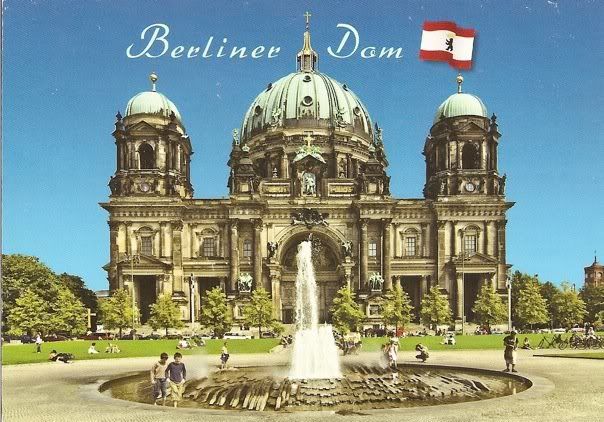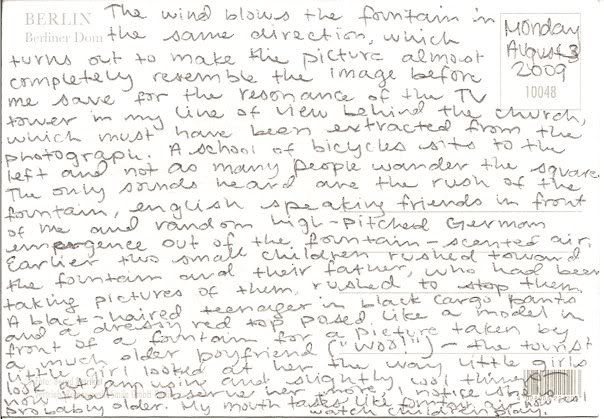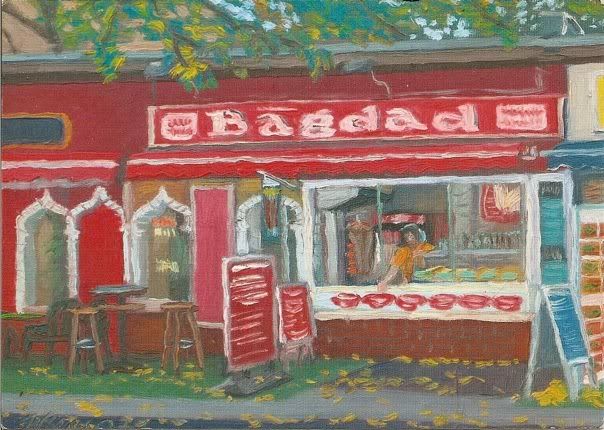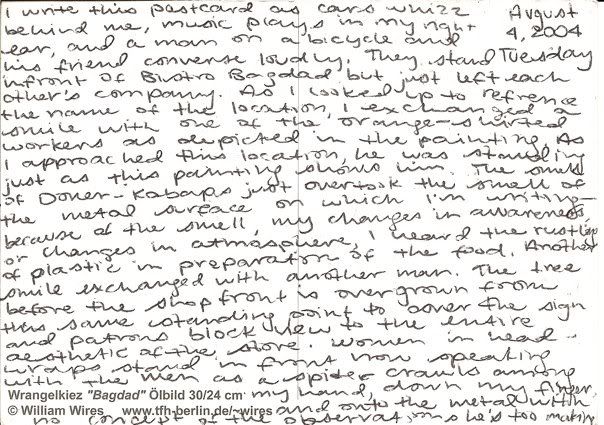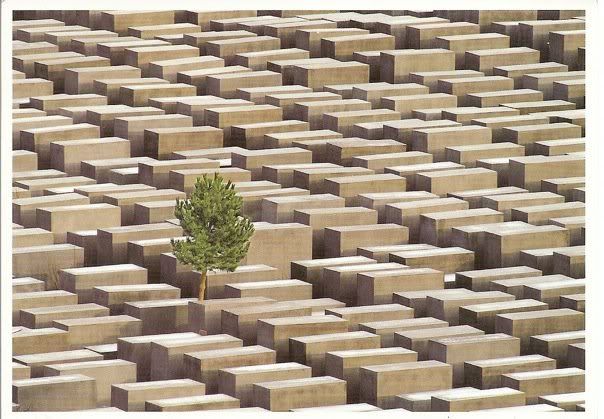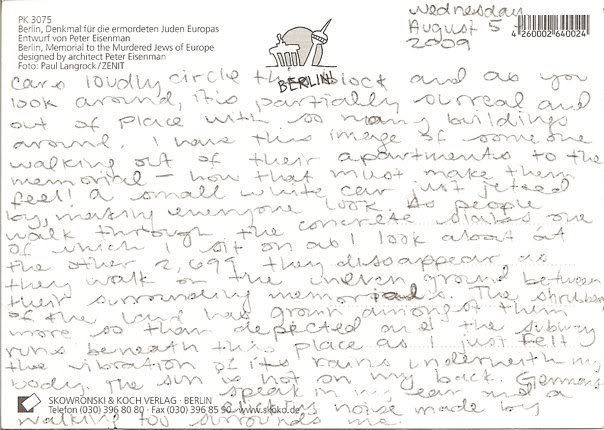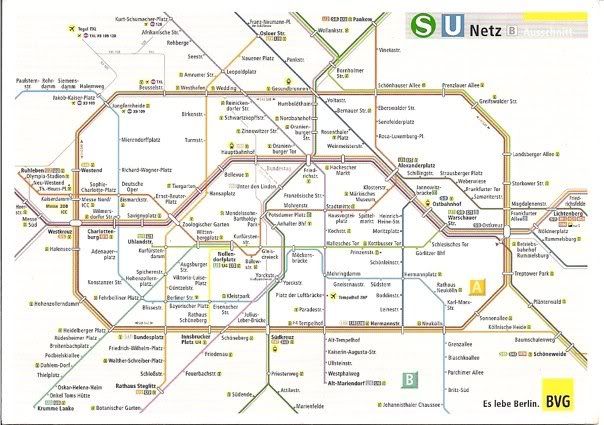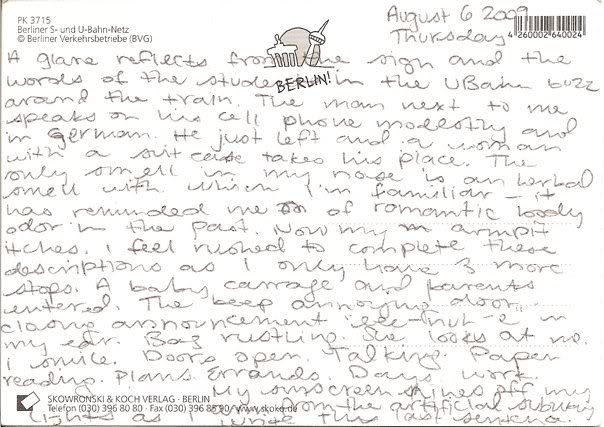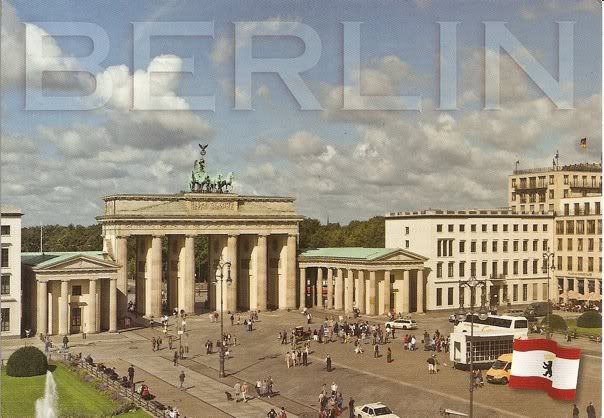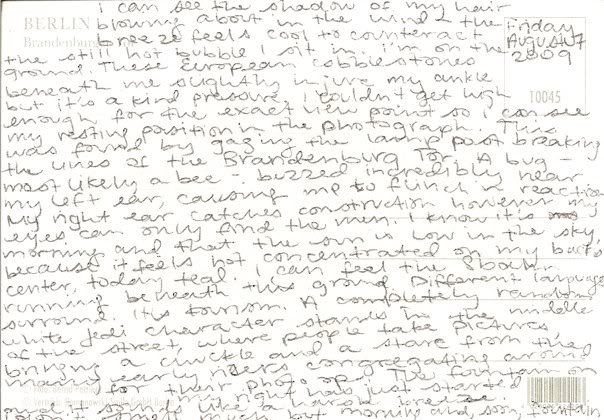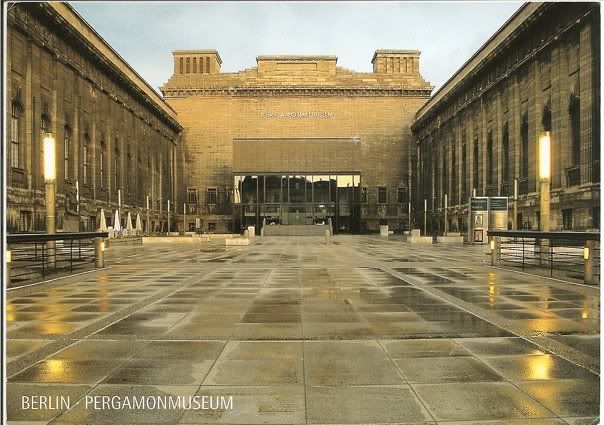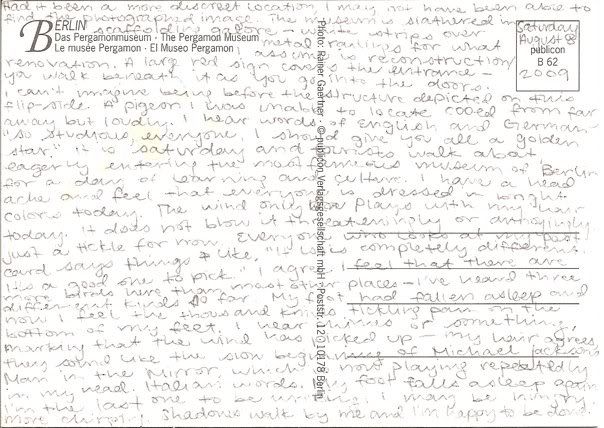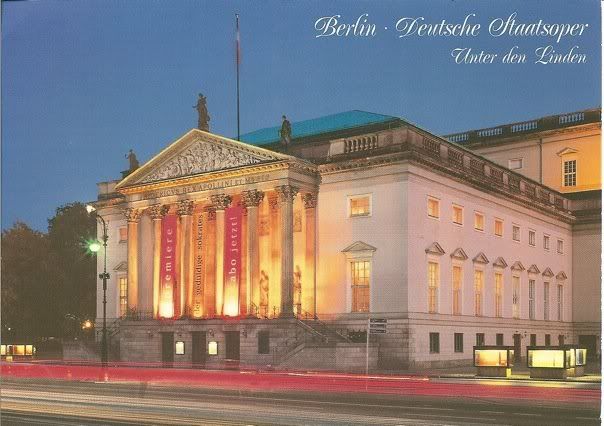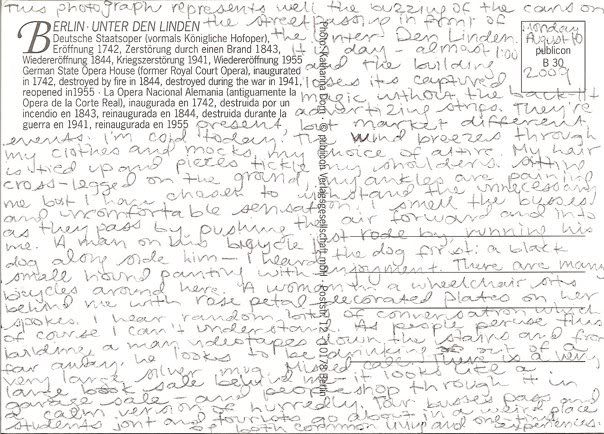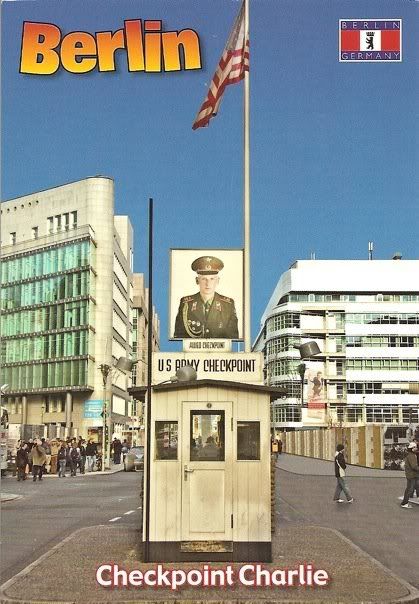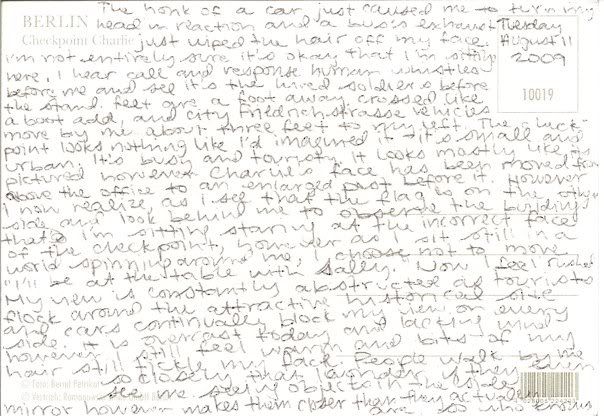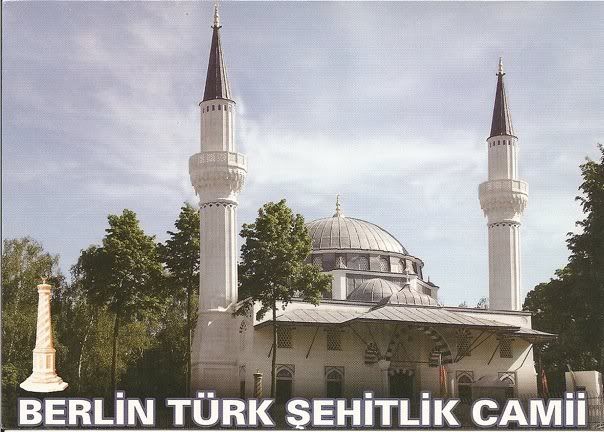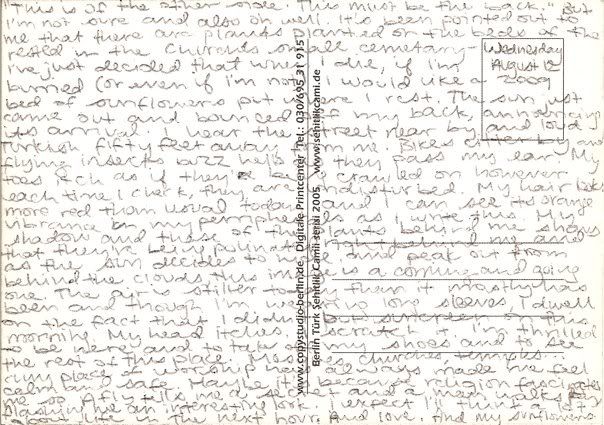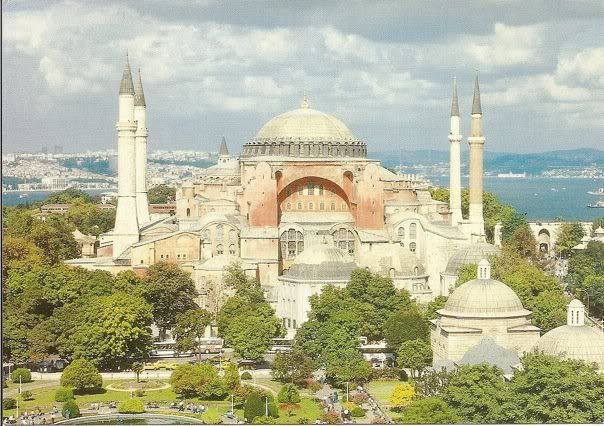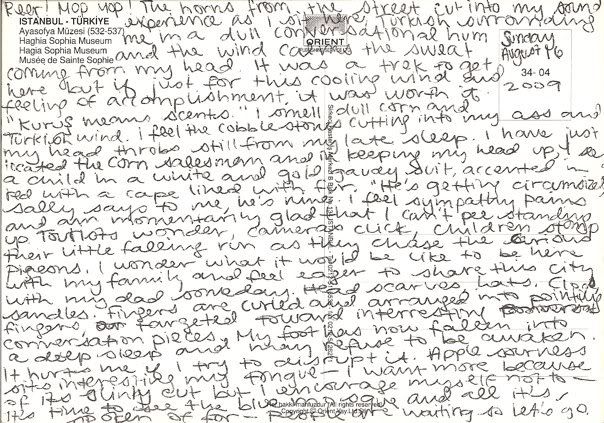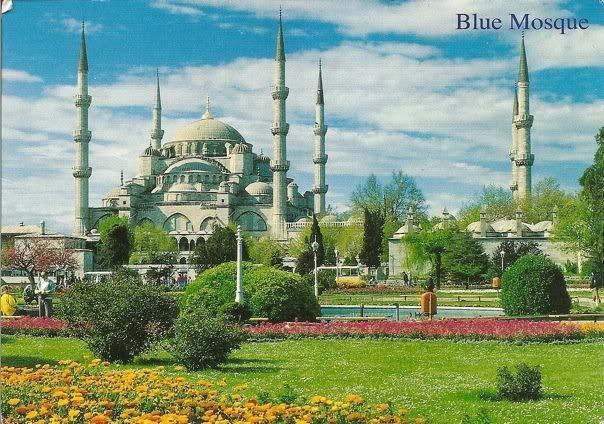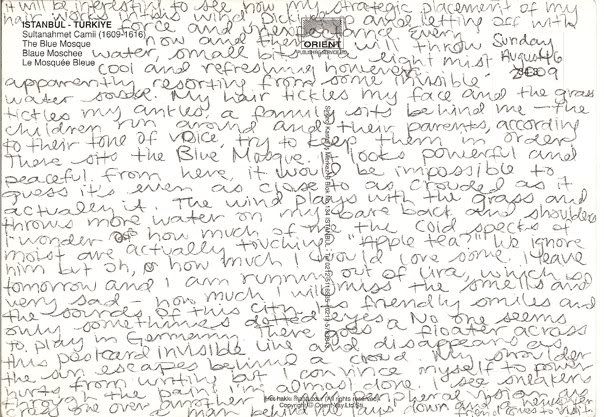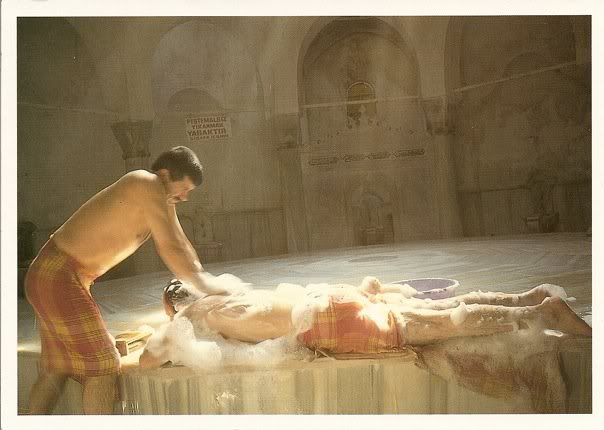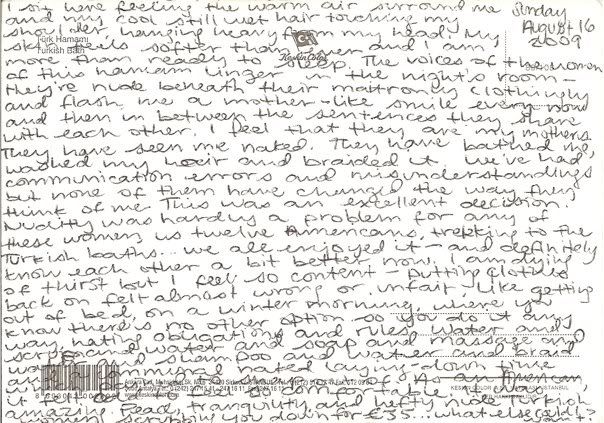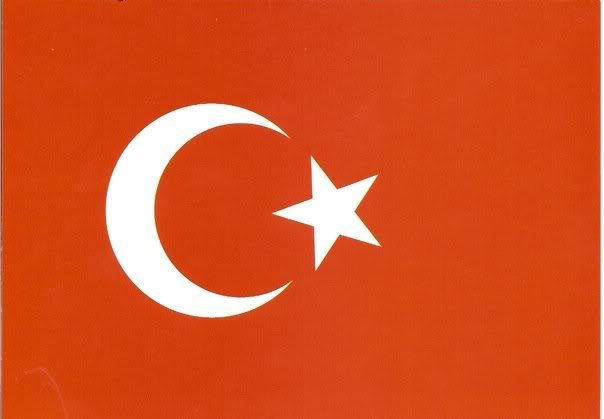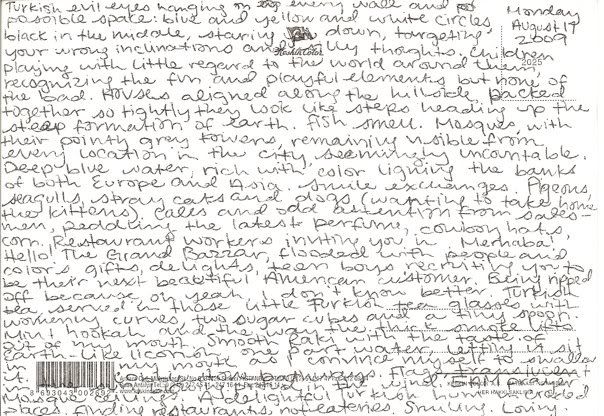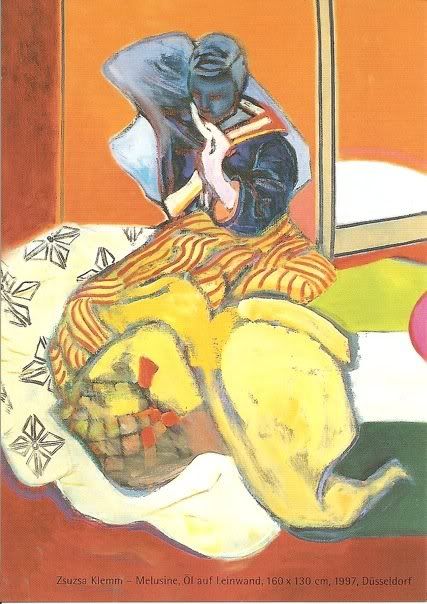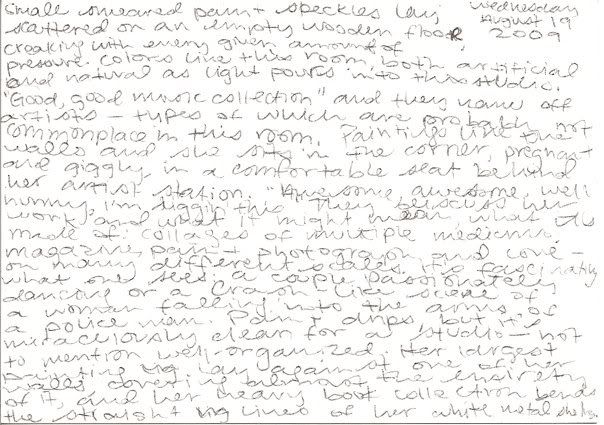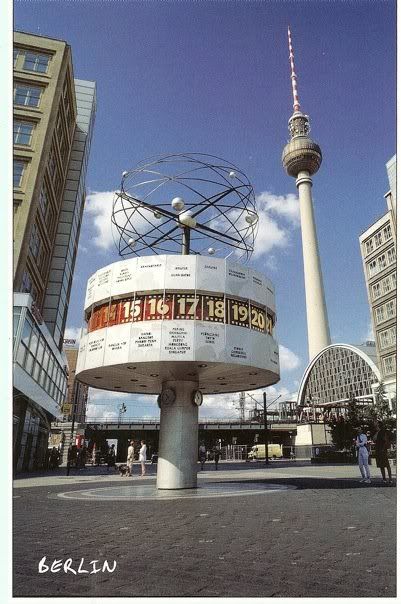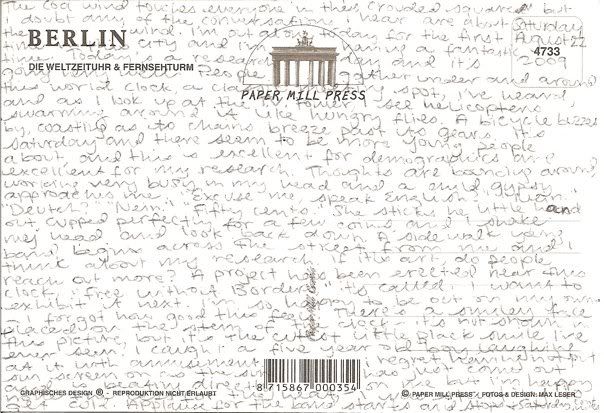Small flirty glances and charming smiles interchanged in a world of fuzzy exchange from one questionable face to another are lost in this European city. Or else just through the mind of this foreigner. I have caught the eyes of countless Germans and have pulled my lips from the corners into a friendly smile, only to receive an uncomfortable change of focus or a continuing blank stare unaccompanied by what I consider to be kindness. It quickly became my goal to define what exactly was causing this surreal experience.

A remarkable paradox of closeness and privacy is palpable in Berlin. Berliners will share tables with strangers but don’t seem to share conversation. You will see what seems to be a lack of personal space as Germans walk through their busy streets, bumping shoulders with those they pass, no entschuldigung, for saying “excuse me” becomes a rarity. The people of Berlin also seem to despise loud noises and as part of an American group of young people, this was a difficult thing to adhere to. It’s been explained to me that the German understanding of a public place is quite actually a mixture of various private spaces thrown together. So as those within their private spaces go about their public lives, they may only attend to their own needs and pay little attention to the other private bubbles bouncing off of theirs.
However don’t allow this to misconstrue your idea of Berliners as self-involved Euro-trash with single-spaced, one-track minded lives, for I believe passionately that this is not the case. The angsty teen in fishnets, black fingerless gloves, and a multi-tiered black skirt may not smile back, not even with her thickly bordered eyes. You can pet the dog, but the owner holding his leash may not look up since he remains involved in his texting and music. Imagine a translucent bubble surrounds them and though they might have the means to break through, it is written in their culture that the concept of reaching out is unattainable. They may want it down, but the wall is up: solid and dense.
Personal interaction with strangers has always been an element of living I’ve deeply treasured. I smile unconsciously at everyone I make eye contact with, I generate conversation with multiple people during my day, and I am an avid member of Couch Surfing, “an international non-profit network that connects travelers with locals in over 230 countries and territories around the world,” as the website states. I am passionate about learning (and telling) the stories of others and thus I’m pursuing an education by way of a self-constructed major that teaches me how to do just that. In lieu of all of this, the problem I encountered immediately after stepping onto European soil was the rather grave lack of stranger-to-stranger connection.

It is true that my being an outsider made the wall even more prominent. I don’t encounter it everyday and I have never brainstormed ways to overcome it. Manuela Mangold, a graduate student at Humboldt, mentioned that “it is foremost about what you’re used to, and…experience then sets the standard for your observation.” This is entirely correct, and to me, the product of a radically loving area, Berlin seemed to be the least friendly city ever. I caught myself leaning against the wall, scratch marks leading to my fingertips, looking around desperately for anything to stand on that might aid in hoisting me over. There’s something on the other side, I was thinking, and I’ve gotta see it! But access there wasn’t. Why did this wall exist?
Before I could delve into answering such a question I needed to gain a better understanding of how thick this wall actually was. I spent some light-hearted time in Alexanderplatz immersing myself deep into the topic. I smiled relentlessly at numerous passers by, tallying the responses I witnessed. My cheeks became numb I was smiling so much – I gave simple smiles, toothy smiles, flirty smiles, uncomfortable smiles… and still my kindness was not returned over 70% of the time. While under 30% did return my smile, close to one third of those smilers were being kind for their own benefit: they were salespeople, performers, or beggars. This wall was thick. It wasn’t willing to budge. So I thought I’d join the movement. Germans like to stare. Could I beat them at their own game? This was the new experiment. No smiles aloud. Two outcomes: a smile from a stranger at a staring me or a challenging return stare, straight-faced, eye to eye. This was when it truly got intriguing. Over 90% locked the look and pursed their lips, demonstrating Berlin’s grumpy reputation. Some refused to look at me in the eye at all. I considered that maybe because Berlin is so used to art and performance, that because everything is always a show, Berliners are used to being an audience member to the lives of others. The hardest thing about it was making that serious effort to act against my honest instinct to smile, which struck me as ironic because the straight face seemed to come so naturally to everyone else.
I started to feel isolated. I needed hugs, and I needed them quickly. Free Hugs is a worldwide campaign started by Juan Mann in an Australian airport on a day when he was feeling particularly lonely. Since then, it’s grown into a worldwide movement made of people who feel Mann’s motivation that “to see someone who was once frowning, smile even for a moment, is worth it every time.” My sign read KOSTENLOSE UMARMUNG and it got me more connection in the first three minutes than I had experienced in all my days in Berlin up to that moment. Alexanderplatz to Friedrichstraße. One hour, fourteen hugs. Four men kissed me. One old Turk asked to buy me a drink. I said no. A guy asked me to make him a sign, which I did. Two people complimented me but said they didn’t want hugs. One young man tried to pay me. He was the best hugger. Carrying the clearly hand-made sign through the busy Saturday city, I braved mocking and harsh German words and reactions while I brought more smiles to the community than I could in any other way.

Why on earth was this happening? I toyed with some ignorant theories: self-involvement rules this city and reaching out is simply not considered. Berlin is a place of tourists and what I am experiencing is just a weird complex of confused people from a mass of different cultures all put together. It’s a generational pattern, leaving the largest group of people in the center, grumpy and unfriendly. But none of these could really be the reason, could they? I couldn’t speak with the actual strangers: I was bordered both by my language ignorance and my need to spare the feelings of others (would it really be right to ask, “why didn’t you smile at me back there?”). The only way I could think to approach this topic was to speak with Germans I knew. They gave me some riveting responses.
“The economic situation leaves people in higher tension,” Manuela told me. Pencil-stiff business men clutch their briefcases and loose teenagers act liquid-like as they swallow more Berliner; beer falls on Katie’s arm – she doesn’t mind, but it’s not soccer they’re looking out for. Tobi Temme, another graduate student echoes the concept, “unemployment is a major problem and I believe the major reason why so many Berliners are depressed.” They’re so busy bouncing back toward themselves that the consideration of acknowledging someone else is out of the question. Self-interest seems to prevail. In our German crash-course, we learned that the word entschuldigung stands synonymous to “excuse me,” which it does, however the phrase is only exercised to permit the user’s benefit. I need to get by. Entschuldigung! I need the waitress’ attention. Entschuldigung! It’s not about “I beg your pardon,” it’s the “hey you” complex.
Manuela told me that the kind of connection I was looking for was easier to get in Southern Germany, in smaller towns. “There are regional differences,” she said. Might it also be arguable that in these small towns, the interaction is between familiar faces and that these people may not be friends but also are likely not strangers? The mention of other areas makes me realize that research is absolutely not (and probably never will be) complete. Tobi mentioned that Berliners are well-known for being grumpy, “it is just part of the regional heritage.” I imagine people standing on maps of their cities, chosen to do so because they represent the full identity of the location. Berlin’s arms are crossed tightly across his chest and he huffs under a hat. For some reason he has a moustache. Manuela continues, “people here keep their distance to a greater extent than, let’s say, in other countries. Getting in contact with someone is far more complicated here…. I would say that there is certainly a different expectation in Germany how to approach a stranger.” So maybe I just had it all wrong: it’s true that I never assimilated to seeing the stand-off-ish-ness of this awkward grump as approachability, but maybe it’s something only a native can accomplish.

Before I arrived in Berlin I spent a month on the road, spanning the bottom of our colorful country: eighteen states, ten Couch Surfing hosts, countless friends, and no brutal chill hitting me from any of the hundreds of cities and towns I passed through. What was the huge difference? This was the main question I was interested in asking Tobi, a man educated in both German and American History—I was more than pleased with his insightful and very clear response. “The phenomenon of stranger walls is definitely rooted in the cultural history of both countries. America has always been an immigrant society, so people were more used to the fact that there are new people in the village (e.g. in frontier villages). Germany on the other hand has had a long history where people (peasants) were held in serfdom and were not allowed to move away on their own. Later German immigration laws had always tended to be quite strict. Then there [are] Germany’s problems with its national identity, being in the midst of a continent with dozens of nationalities lead to discrimination of strangers in order to preserve the national identity.” There may be no solution to a thick wall that is only understandable through the eyes of culture and history, but a history book fell open to this page and in my attempts to climb over the wall, I’ve found serious understanding as to why this wall may exist. “Also there is the North-West European ideal of reservedness, as a means of distinction [or roots in nobility]. You just don’t talk to everybody because that would make you common.”
It may be easy to say things like, real Berliners are many right-winged skinheads who hate everyone except themselves, their little house, and their pit-bull, but the circumstance is clearly not as simple and straight-forward as some radical Berliners chose to explain it to me. It was suggested that Berliners are all depressed from the wall (some its existence and some its demolishment) and therefore peruse the city dwelling in their upset state, but the advised depression was not confirmed by any other Berliners I spoke with. The truth seems to lie in the current state of the city, characterized by unemployment and the economy and in the underlying history of Germany’s regional stingy outlook toward the immigration of strangers. As they balance the line of the wall, Berliners go through their tasks within their heads, wearing blinders to the minds – no, people – no, bodies before them.
I grew up, as many children do, riding in the back seat of my parents’ car, playing Sweet and Sour with my friends. Wave at strangers driving by. If they wave back, it’s sweet. If they don’t, it’s sour. The Germans I spoke with say no stranger-to-stranger kindness game exists in German childhood. My second week in Berlin I met with a Couch Surfing member, Sophia, at a bakery in Alexanderplatz. While standing before the pastries, trying to make my decision, I heard a thud behind me: an older woman had fallen down. Her friend had run to her aid and an employee of the bakery slowly walked toward the scene, but the other thirty plus people in the small room did nothing but stare as spectators in an arena. It was as if the walls in their heads were physical ones, Plexiglas, letting them look on but not reach out. I found it ironic that this event happened while I was meeting with a Couch Surfing member since the Couch Surfing organization is so completely counter-everything I was experiencing in the city. I contacted the Berlin CS ambassador for an interview, but he never responded.

A Salem, Oregon couple was on their way to church in December of 2007 when they witnessed a head-on collision. It looked really bad. The cars spun away from each other and when they stopped, they looked like crumpled up metal. The couple stopped their car. They got out, and rushed to the scene, hugging the victims and offering any help they possibly could. They followed my family to the hospital and stayed while we awaited the verdict of my father’s cat scans and his potential death. They gave us their home phone number and their address. They offered us food and rides and their prayers. I’m stopped when thinking this might be feasible in the outskirts of Berlin.
I’m home now. I’m in Oakland, in Berkeley, in Seattle, and my world just seems open to me. It’s inviting and comforting—it seems somehow to know me even though in its density its knowledge is really only its ignorance. These three cities I call home are everything Berlin is: they’re self-involved, they’re defined by culture and by their history, but that all these things have happened in the name of, well, love makes all the difference. I appreciate so much the kindness I have received from the world around me in the past month I’ve been home and I’m reminded once again of what is truly important to me. I still wonder many things: why we are so concerned with this ‘awkward’ feeling, why eye contact seems to be the most difficult thing in the world, why having meaningful connections with strangers is never even attempted let alone considered…but for now smiles will suffice.
I’ve been pressing on this concrete for so long that it’s about time I find a door and if I can’t, I’m determined to make one. Sweat trickles down my face and my hand balls into a fist. A pound on the wall and still nothing. I’m out of hot breath and I can’t keep pushing for something that just isn’t willing to happen for me, so I gather my things and walk away. Around a corner, down some steps I bounce, the wind cooling the hot moist skin on my face. A man walks toward me and I slow down, conflicted where I should look. My shifty eyes finally greet his stare. He looks at me pleasantly as his feet pass by one another with a brisk wind. The wall is behind me but is it still between us? Closer and closer we get, his German eyes remain fixated as my eyes pass back and forth, uncomfortable and smiling. Soon a wind hits my body as he passes me, sipping up every last drop of eye contact possible before he can’t, but a smile never happens.

